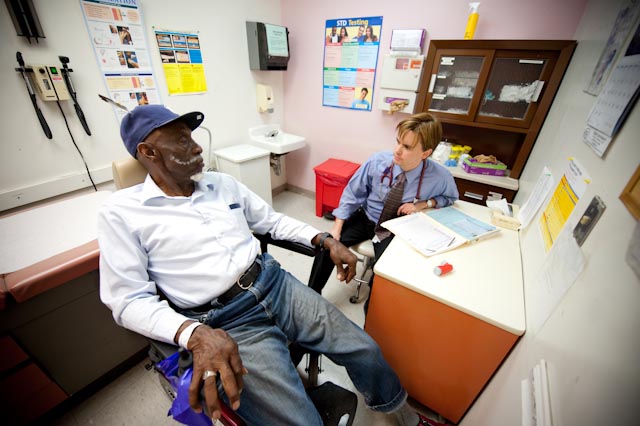Trauma-Informed
Organizations
Research: Trauma-Informed Organizations
Change Package
Overview
A trauma-informed (TI) organization understands the impact of trauma and works to create a complete care environment that encourages healing and prevents re-traumatization. TI organizations develop policies, practices, and procedures that incorporate an understanding of trauma, consequences of trauma, and TI principles throughout their service delivery model and organizational structure.
This change package complements the National Health Care for the Homeless Council’s four-part component assessment tool and the TI Organizations (TIO) toolkit to provide practical guidance for organizations in developing a system wide TI understanding, which incorporates eight TI principles.

Organizations are encouraged to conduct the assessment and use the results to help them better understand programmatic practices and culture, determine strengths and opportunities for growth, and further dialogue around TI practices.
This change package then provides suggested strategies, organized by principle, which can help organizations think through potential improvements that move the organization toward more TI policies and practices. Organizations can use these change strategies in conjunction with the assessment results to target change strategies where the organization demonstrates a need. Remember, completing the assessment and adapting new TI strategies is not the end of the journey. Being a TI organization is a constant process.
How to Use This Change Package & Trauma-Informed Principles
Change Strategies, Organized by the Following Principles:
Click on the links below to learn more.










HRSA and the National Health Care for the Homeless Council:
This publication/procurement is supported by the Health Resources and Services Administration (HRSA) of the U.S. Department of Health and Human Services (HHS) as part of an award totaling $1,625,741 with 0% match from non-governmental sources. The contents are those of the author(s) and do not necessarily represent the official views of, nor an endorsement by, HRSA, HHS, or the U.S. Government. For more information, please visit https://www.hrsa.gov/.
